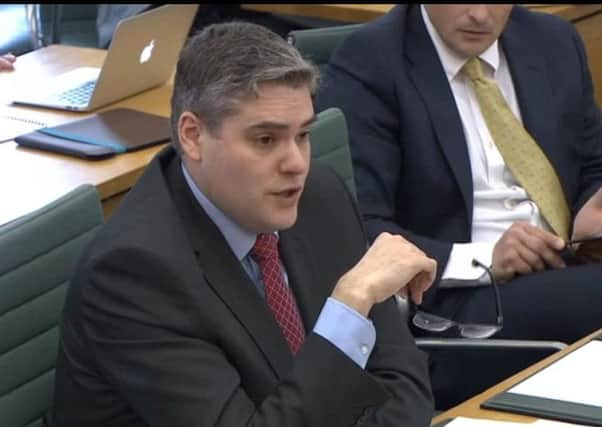MPs hear evidence on how to protect Troubles soldiers


The House of Commons Defence select committee examined legacy investigations into fatalities carried out by British military personnel.
Gavin Robinson, the only Northern Ireland MP who is on the committee, told the News Letter on Tuesday night that he felt it had been useful hearing:
Advertisement
Hide AdAdvertisement
Hide Ad“The point of the meeting was to find out what legal options are open to government to protect soldiers and service personnel,” the DUP MP said.
“At times it was fractious – there are some Conservative members who are veterans on the committee and who are frustrated at any barriers that would be put in the way of protecting soldiers.”
The East Belfast MP said: “There are options that are available to government to protect the security forces that would not be ruled out by the European Convention on Human Rights (ECHR).
“There was a broad consensus from the legal evidence that there is a difficulty in applying post 1995 ECHR standards to 1970s killings by the state. The lawyers said the government could bring forward a statute of limitations but there was a divergence of views as to whether it was politically appropriate.
Advertisement
Hide AdAdvertisement
Hide Ad“From my perspective it was a very useful hearing. It was clear that the government does have options to protect those who protected us. Now we have to convince the government that it is the right thing to do.”
During the heading, committee chair Dr Julian Lewis MP said he wanted to know where the law stood on past cases. He gave this scenario: “A terrorist opens fire – I’m not saying whether it’s a loyalist or republican – opens fire on a soldier 40 years ago, the soldier draws his weapon, returns fire, and kills the terrorist.
“No action is taken because of those circumstances. But for the purposes of the ECHR, that hasn’t been independently investigated. Is there any way that the government can say: ‘We do not propose to revisit this matter’?”
Phillipe Sands QC, Professor of Law, University College London, said: “The short answer from my perspective is the government does not have as an option simply to close down all investigations because the government believes they meet certain fact patterns, or because they occurred beyond a certain period of time.”
Advertisement
Hide AdAdvertisement
Hide AdProfessor Richard Ekins, Tutorial Fellow in Law at Oxford University, said that “clearly the scenario you have outlined precisely would be held now to be in breach of the ECHR; [it’s] not an independent investigation”.
But he added: “I don’t think it follows however that the failure to re-open an investigation now into that same fact pattern is a new breach or a continuing breach...
“It’s less clear to me there’s a continuing obligation to investigate actions [and] matters that were not properly investigated at the relevant time.”
Other legal experts giving evidence included Kieran McEvoy, Queen’s University Belfast professor of law and transitional justice.